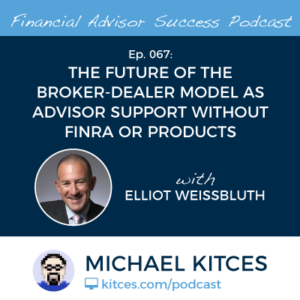The Tax Cuts and Jobs Act (TCJA) eliminated recharacterizations of Roth IRA conversions made in 2018 or later, as while Roth recharacterizations were originally created as a means to "undo" a Roth conversion for someone who later discovered they were over the conversion income limits (which were in place until repealed in 2010), in recent years they were increasingly used as a proactive strategy to increase the value of Roth conversions... and thus became perceived as an "abuse" and "loophole" that Congress felt the need to crack down on. Nonetheless, while Roth recharacterizations are now gone, it doesn't change the fact that Roth conversions themselves can still be effective tax planning tools for helping clients reduce their long-term tax liabilities. However, the elimination of the Roth recharacterization changes the optimal timing and execution of Roth conversions going forward!
In this guest post, Jeffrey Levine of BluePrint Wealth Alliance shares some Roth conversion planning strategies and considerations after the TCJA, including the even greater importance of due diligence before completing Roth conversions, a potential shift in the best time of year to complete Roth conversions, and new best-practices strategies like Roth IRA conversion-cost-averaging, and Roth IRA conversion "barbelling".
Notably, recharacterizations of Roth contributions are still permitted, so clients who contribute to a Roth but end up with income above the contribution limit can still change their Roth contribution back to a traditional IRA contribution... but recharacterizations of conversions that happen in 2018 and beyond are no longer permitted (though prior-year 2017 conversions can still be recharacterized until October 15th of 2018).
The elimination of all recharacterizations of conversions puts even greater emphasis on getting a conversion right the first time, as the most common reasons for wanting to complete a recharacterization (e.g., market decline, client income was higher than expected, or a client simply changing their mind) could result in considerable client dissatisfaction if a conversion isn't done right the first time (or if the client doesn't understand the implications of new changes). Further, less commonly noted implications of Roth conversions, such as the potential to increase Medicare Part B and Part D premiums, should not be overlooked!
In the past, completing Roth conversions as early as possible in the year was generally ideal, as a means to both maximizing the time available to consider a recharacterization, and because of the general trend for markets tend to go up more than they go down (which meant it was best to get the dollars into the Roth as early as possible so that growth would happen inside the tax-free account). Now, however, the inability to undo Roth conversions (including partial recharacterizations of an excess conversion) means it will often be more effective to implement conversions towards the end of the year, when income (and deductions) can be projected more accurately with greater confidence. More generally, clients may now want to consider various Roth conversion timing strategies, as Roth IRA conversion-cost-averaging (to diversify conversion timing risk), Roth IRA conversion "barbelling" (to balance both growth potential and over-conversion risk), in addition to simply still making a full conversion as soon as possible (to maximize Roth growth potential), or just waiting until the end of the year for all of it (to be safe).
Ultimately, the key point is to acknowledge that Roth conversion strategies are still useful after the TCJA. Although many popular Roth conversion strategies are no longer viable after the elimination of the recharacterization of Roth conversions, the attractiveness of recently reduced tax rates arguably makes Roth conversions even more appealing... with the caveat that it's more important than ever to consider the timing!Read More...

 Welcome, everyone! Welcome to the 67th episode of the Financial Advisor Success Podcast!
Welcome, everyone! Welcome to the 67th episode of the Financial Advisor Success Podcast! Welcome, everyone! Welcome to the 66th episode of the Financial Advisor Success Podcast!
Welcome, everyone! Welcome to the 66th episode of the Financial Advisor Success Podcast!
